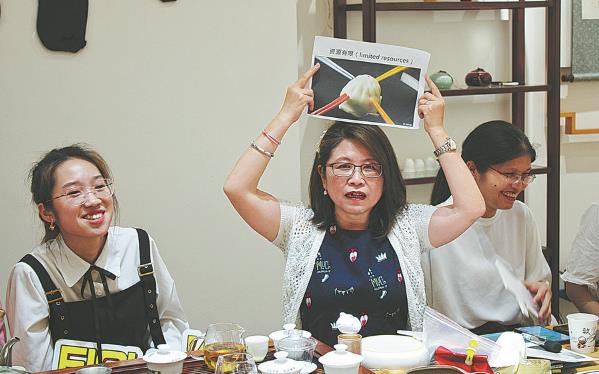

The experience further predisposed Hsu to a long-term career in Fujian, the language, culture and folk customs of which she deems to be very close to those of Taiwan.
In addition, she and her husband had wanted their daughter to study in the Chinese mainland.
"Compared with Taiwan, the mainland has closer connections to the world, and it could (better) help the child cultivate an international perspective, broaden her views and establish a positive outlook on life," Hsu says.
Another reason compelling her to make the decision of pursuing a career in the mainland came from her husband.
Hsu's in-laws moved to Taiwan in 1949 from Sichuan province in Southwest China. Her father-in-law had visited Sichuan a few times and grew very nostalgic.
Under this family influence, her husband has grown a strong sense of attachment to the mainland, especially after he retired.
"We had a family meeting afterward, and eventually decided to move our life to the mainland," Hsu says.
In August 2019, Hsu's family flew to Fujian and took the offer as an associate professor with the college's business economics department.
"Although the college wasn't established until a few years ago, it is young and full of opportunities," Hsu says.
The college was founded in 2012 and is part of the county government's efforts to develop tea management talent and scientists in support of its tea industry, which has involved about 80 percent of the local population.
"It embraces innovation and is a great place for teachers from Taiwan to develop," Hsu says.
"Plus, students here are very active and have a thirst for knowledge."
She takes pride in her role-play pedagogy, which has managed to stir up the enthusiasm of her students in class interactions with one another, and it has yielded positive results.
She turned hot international topics into skits or operas and had students play the roles, such as importers, exporters and arbiters, before she gave an in-depth review and analysis of their performances.
The approach has enabled her students to have fun in education while acquiring better understanding of the course.
"They are filled with vitality as different ideas collide," she says.
She has also inspired her students to join various national contests as an approach to gain practical experience and her teams have won multiple first and second prizes.
Hsu has been upholding the idea of going from books to practice in her education philosophy, which she finds coincides with the college's focus on industry and education integration.
"The tea college teaching places an emphasis on practice," she says.
"The classroom is mainly about gaining expertise in theory, but overall strength needs to be honed in practice."